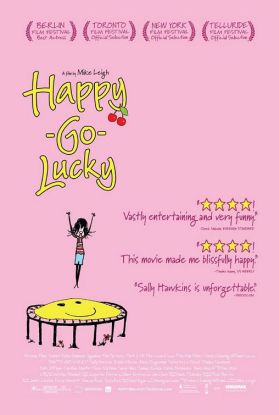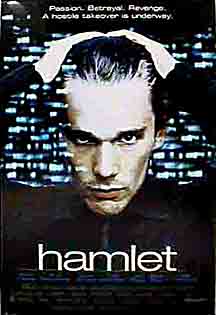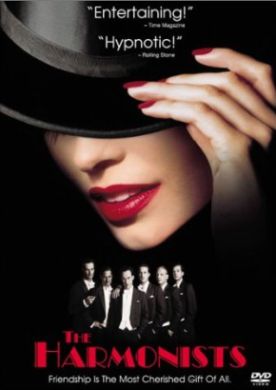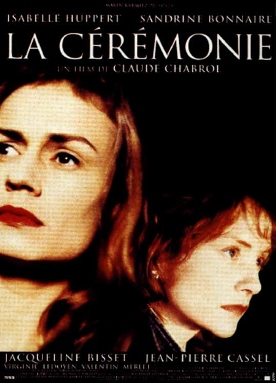Happy-Go-Lucky
In his new film, Happy-Go-Lucky, as in so many of his previous ones, the British director Mike Leigh is not interested in telling a story but rather in conducting chemistry experiments. You put several people of very different types together in different mixtures and combinations and watch what kinds of reactions are thus created. Sometimes they fizz and turn colors, sometimes they spark and sometimes they go off with a bang. Also as in most of his earlier films, the central figure — the catalyst, to continue the metaphor — is a woman. All the other elements define themselves with respect to a 30-year-old London primary school teacher who goes under the name of Poppy (Sally Hawkins). She was conceived by Mr Leigh to look like the one relentlessly positive figure in a sea of negativity — in short, as an annoyance. But as we become more closely acquainted with her, we find not only that she is more interesting and admirable, even lovable, than annoying but also that it is not really her optimism that defines her so much as her integrity.
By this I mean that she is the same all the way through, like a stick of Brighton rock — the British seaside treat that has the name of the town printed in it at any place where you bite off a piece. Everybody else appears in layers, and familiar layers at that. On top, they show at best a brittle cheer accompanied by wariness; at worst they display tension, anxiety and gloom. And underneath the surface layer, they tend to be full of seething disappointment, anger and resentment. Nick (Jack MacGeachin), an abused child in Poppy’s primary school class, becomes a metaphor for the whole of society, in Mike Leigh’s view: someone mistreated by life who then withdraws from normal social intercourse or takes out his mistreatment on others. Or both. “Man hands on misery to man” as Philip Larkin, speaking for much of post-war British culture, put it in his famous plea for an end to the progress of the generations (“Get out as early as you can/And don’t have any kids yourself.”) In this context, Poppy’s optimism becomes subversive.
That he is willing to entertain such subversiveness, in spite of his own resentments, which seem to be mainly political, is one of the things I like best about Mike Leigh. In an interview last spring, he told the Daily Telegraph that Happy-Go-Lucky was “about education: how we learn and how we teach. It’s about responsibility. About trust, about men and women, and about commitment. I felt it would be a good time to make a film that would be, in some way, anti- miserabilist. These are tough times we’re in; we are destroying ourselves and the planet, but there are some people who care enough about the future to be teaching kids.” By that measure, it doesn’t take much to be “anti-miserabilist,” but in Poppy’s case, there are hints that her kindliness and good cheer are bought at a price that would be too high for most people. The film opens with her visiting a bookshop and fingering a copy of Roger Penrose’s book, The Road to Reality. “Don’t want to go there,” she mutters to herself. Meanwhile, outside, her bicycle is being stolen.
This event is meant to give us right off the bat a sense of Poppy’s sweet other-worldliness. When her flatmate, Zoe (Alexis Zegerman), subsequently suggests that she buy a new bicycle, she declines, speaking wistfully of the old machine — “We didn’t even have a chance to say good-bye” — which she seems to regard as having left her voluntarily, like a child who has grown up and “flown the nest.” She won’t replace it but instead plans, finally, to learn how to drive. This provides the occasion for Scott (Eddie Marsan), a morose and very tightly–wound driving instructor to come on the scene. Scott is Poppy’s perfect opposite, so far gone in gloomy pessimism that he is a conspiracy theorist — America and Americans seem to be his particular bugbear — with a gigantic chip on his shoulder. The first principle of safe-driving, he tells Poppy, is to expect the worst. Always assume that just around that blind corner a juggernaut — that is, an eighteen-wheeler — is barreling down on you.
Though this may be good advice to drive by, it doesn’t recommend itself to us as a maxim to live by. Scott becomes a creep and a stalker, convinced that Poppy’s general friendliness and teasing good humor is a sign of flirtatiousness and a romantic interest in himself. He manages to stand for everything in the world that Poppy stands against without becoming a completely unsympathetic character. Like Poppy, we pity him. In the climactic scene between them, she dismisses him by saying, “I wish I could make you happy, Scott.” That’s the trouble with her. She wants to make other people happy when they don’t want to be happy, and they resent it. On a visit to her pregnant sister Helen (Caroline Martin), the response of much of the rest of the world to Poppy comes out in Helen’s very different sort of concern for her sister’s happiness. “You’ve got to take life seriously, Poppy,” she harangues her — and then, inevitably: “I just want you to be happy.”
Poppy replies, “But I am happy!”
“Don’t rub it in!” says Helen, almost in tears.
It’s a wonderfully funny moment made all the funnier by Helen’s domineering personality, which we see in her treatment of her hapless husband Jamie (Oliver Maltman). His happiness, too, we can imagine, is the unfortunate object of her solicitude. But the joke is also revealing as to what so many others find most threatening about Poppy. If she can be happy, what then becomes of their many and various grievances against the world? There’s nothing more resented than a good example.
The only character in the film who has Poppy’s sort of integrity — and therefore nothing to hide — is an anonymous tramp (Stanley Townsend) whose disappointments and resentments are all freely and constantly, if incomprehensibly, expressed. Poppy seems to find him fascinating. The only understandable words in the endless stream of gibberish he spouts are “You know?” Every time he utters it, Poppy reassures him. “Yes, I know.” But that is really the crucial question of the film. Does she know, or is she still in full flight from “reality”? Mike Leigh seems to think that she does know the worst about the world and that, therefore, she somehow deserves her happiness. But, if so, what becomes of her integrity? Isn’t she just better than other people at hiding her fears and resentments?
In the final scene, when Zoe advises her to give up being “too nice” and warns her that she “can’t make everyone happy,” we know already that she won’t stop trying to do just that. Not because she thinks she can make everyone happy, but because being too nice is her own way of being happy and, at the same time, a reproach to the dark side of “reality” that everyone else seems to be obsessed with. It’s a cheerful, even inspiring thought, but it leaves that alleged reality largely untouched and waiting around the corner, like Scott’s juggernaut, to flatten us. As a result, we’re likely to feel a bit like Helen, that Poppy’s happiness is, so far as we are concerned, just a way to “rub it in.” In his next film, it would be nice to see Mike Leigh taking on not only gloom and anger and resentment but the things that people think they have to be so gloomy and angry and resentful about — in short, “reality” itself.
Discover more from James Bowman
Subscribe to get the latest posts to your email.






